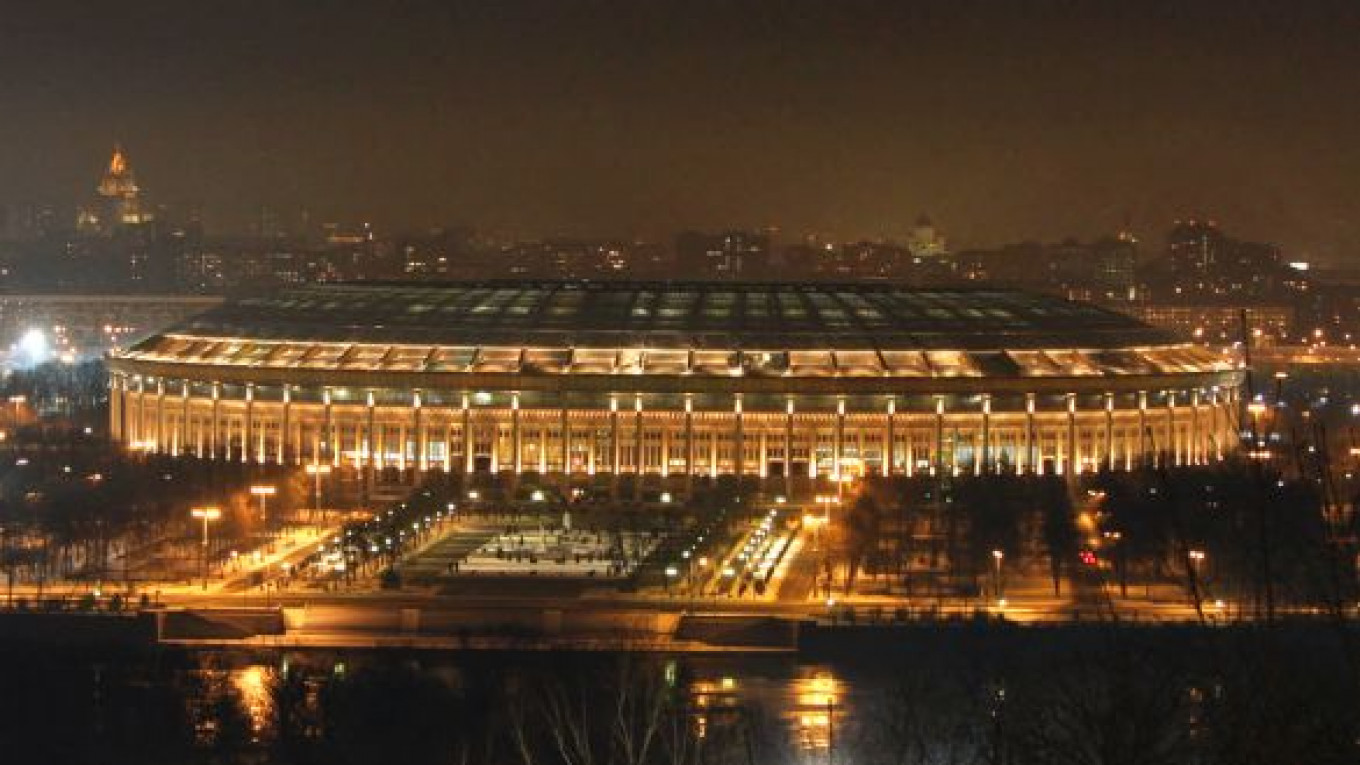Vladimir Alyoshin, the main owner of the Luzhniki Olympic complex, is selling his stake in the company to the city of Moscow for 10 million euros ($14.2 million), Vedomosti learned from sources close to the businessman.
Alyoshin became an owner of Luzhniki after its privatization in 1992. According to SPARK, Alyoshin directly owns 6 percent of the complex and also owns 54 percent of the Luzhniki-progress company, which in turn owns 30 percent of the entity.
Two City Hall officials confirmed the deal, but Vedomosti was unable to reach Alyoshin for comment.
Alyoshin had headed Luzhniki since 1982 until he was dismissed two weeks ago. Alexander Pronin of Russian Technologies was named acting chief executive.
The management change took place a week after Mayor Sergei Sobyanin said the sports complex should belong to the city.
Hundreds of acres in the heart of the city, with stadiums and a park, are privately owned, he said. "A park where people could stroll or play is set as 'off limits,'" the mayor said.
The Luzhniki complex sits on 145 hectares of land, and consists of 140 facilities employing 3,500 people.
The most valuable asset is the stadium. "This is the only five-star stadium in the country that meets the requirements of FIFA and UEFA. Alyoshin deserves credit for maintaining the place in excellent condition," said Vyacheslav Koloskov, a member of the executive committee of FIFA and UEFA.
But for Muscovites, Luzhniki has become inaccessible due to exorbitant prices, Koloskov said. "If before many people were involved in sports, now there are none. Everything is done on a commercial basis," he said.
A source at the Russian Football Union said renting a stadium for a football match usually costs from 3 million to 10 million rubles ($107,000 to $357,000), but the Luzhniki prices are higher.
About 10,000 square meters of space is rented out at Luzhniki for various purposes, said Konstantin Kovalev, managing partner of Blackwood. Rates vary from 6,000 to 14,000 rubles per square meter per year. In addition there is a mansion and a shopping area, where rates are likely to be even higher, sources said.
The land value alone of the sports complex is about $1 billion, said Mikhail Gets, managing director of Praedium Oncor International.
Though the city now owns 25 percent of Luzhniki, the reconstruction of the large arena that took place between 1995 and 1997 was funded from state coffers, said Boris Guretsky, general director of Mospromstroi, which was the general contractor for the project. In 2008, in preparation for the league championships, City Hall spent $30 million on repair works at Luzhniki.
However, in an interview with Sport-Express, Alyoshin said that in both cases the shareholders financed part of the work.
The Moscow Prosecutor's Office is now examining the legality of the markets on the territory of the sports complex.
A Message from The Moscow Times:
Dear readers,
We are facing unprecedented challenges. Russia's Prosecutor General's Office has designated The Moscow Times as an "undesirable" organization, criminalizing our work and putting our staff at risk of prosecution. This follows our earlier unjust labeling as a "foreign agent."
These actions are direct attempts to silence independent journalism in Russia. The authorities claim our work "discredits the decisions of the Russian leadership." We see things differently: we strive to provide accurate, unbiased reporting on Russia.
We, the journalists of The Moscow Times, refuse to be silenced. But to continue our work, we need your help.
Your support, no matter how small, makes a world of difference. If you can, please support us monthly starting from just $2. It's quick to set up, and every contribution makes a significant impact.
By supporting The Moscow Times, you're defending open, independent journalism in the face of repression. Thank you for standing with us.
Remind me later.






